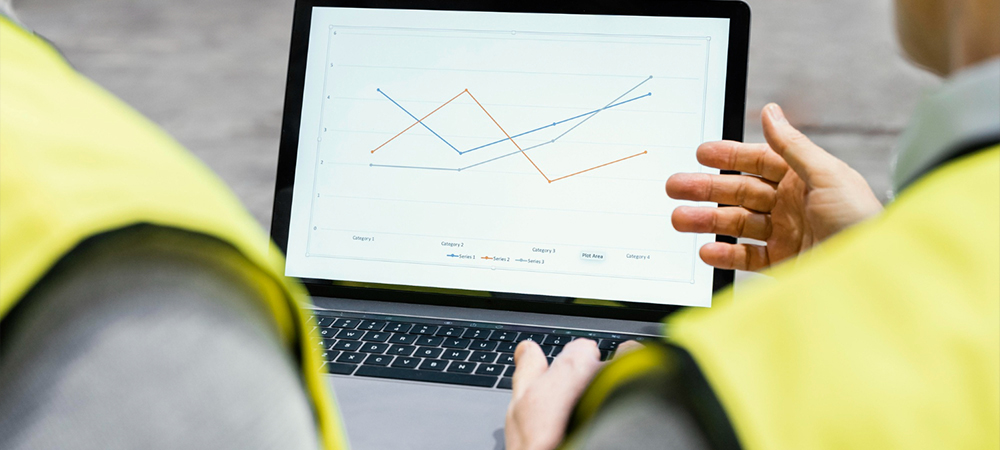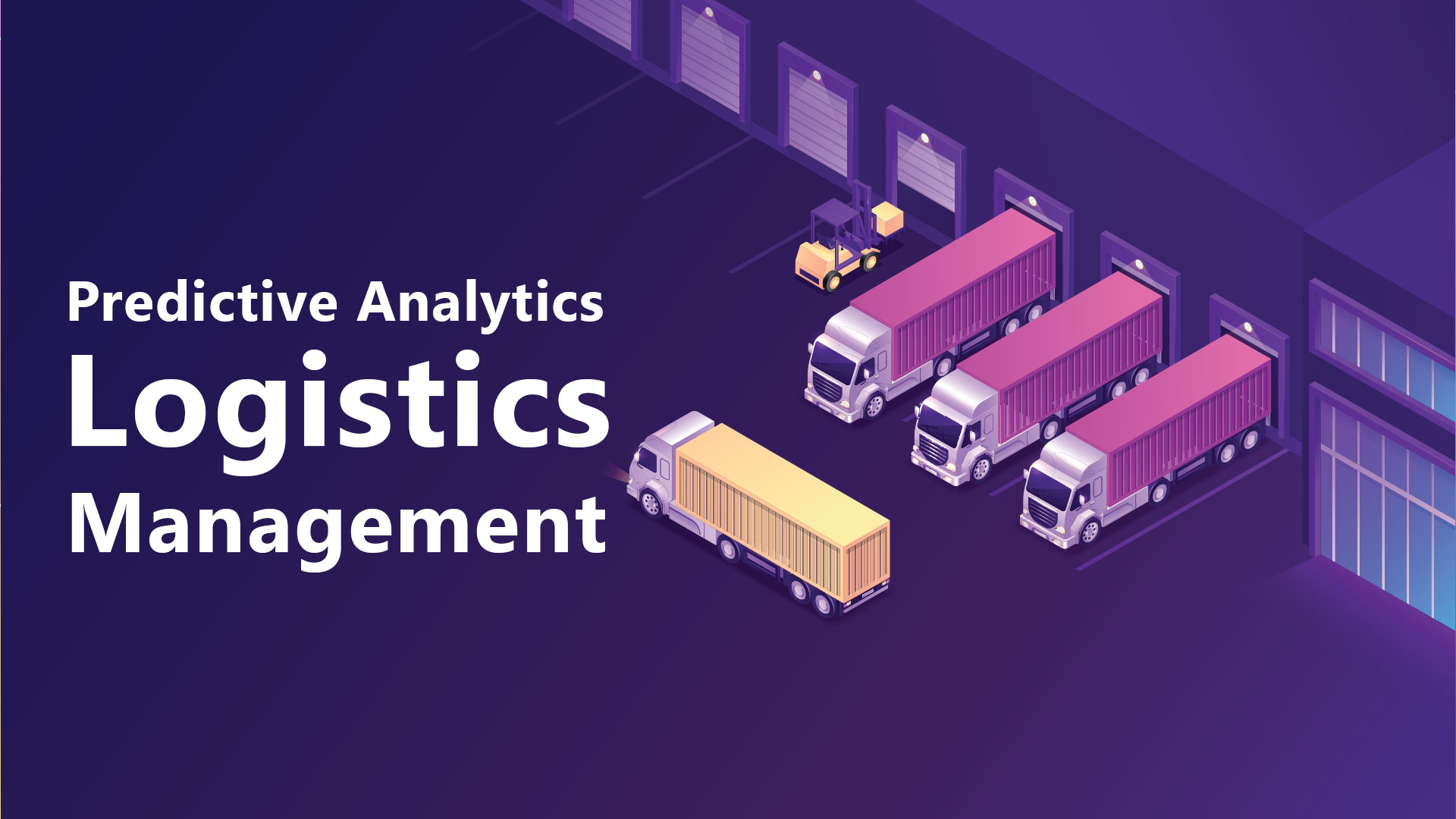In today’s rapidly evolving logistics industry, staying ahead of the competition requires more than just efficient operations and effective supply chain management. With the advent of technology and the abundance of data available, logistics companies can leverage predictive analytics to gain a competitive edge and drive business success. In this article, we will explore the benefits of predictive analytics in logistics management and delve into a real-world case study that demonstrates its practical applications.
Introduction
Predictive analytics refers to the use of historical data, statistical algorithms, and machine learning techniques to identify patterns, make predictions, and generate actionable insights. In the context of logistics management, predictive analytics utilizes data from various sources, such as customer orders, transportation routes, weather conditions, and inventory levels, to anticipate future events and optimize operational processes. By analyzing past trends and patterns, logistics companies can make informed decisions, mitigate risks, and streamline their operations for improved efficiency.

Applications of Predictive Analytics in Logistics Management
Demand forecasting and inventory management:
Predictive analytics enables logistics managers to forecast customer demand accurately. By analyzing historical sales data, market trends, and external factors, logistics companies can optimize inventory levels, reduce stockouts, and avoid overstocking. This leads to improved customer satisfaction, reduced holding costs, and better cash flow management.
Route optimization and fleet management:
Efficient transportation is crucial for logistics companies to meet delivery deadlines and minimize costs. Predictive analytics can help identify optimal routes based on real-time traffic data, weather conditions, and historical transportation patterns. By considering factors such as fuel consumption, driver availability, and vehicle capacity, logistics managers can optimize the allocation of resources, reduce transportation costs, and increase on-time delivery rates.
Warehouse operations and supply chain visibility:
Predictive analytics provides insights into warehouse operations, allowing logistics companies to optimize layout designs, reduce congestion, and streamline order-picking processes. By analyzing data related to order volumes, product characteristics, and customer locations, logistics managers can improve order fulfillment accuracy and reduce processing times. Additionally, predictive analytics enhances supply chain visibility, enabling better coordination with suppliers, improved inventory management, and proactive issue resolution.

Benefits of Predictive Analytics in Logistics Management
Implementing predictive analytics in logistics management brings numerous benefits to companies in this highly competitive industry:
Improved operational efficiency:
By leveraging predictive analytics, logistics companies can optimize their processes and minimize inefficiencies. This leads to reduced operational costs, increased productivity, and faster order fulfillment. With accurate demand forecasting and optimized routes, logistics managers can allocate resources effectively, reduce idle time, and enhance overall operational efficiency.
Enhanced decision-making capabilities:
Predictive analytics provides logistics managers with data-driven insights and actionable intelligence. By leveraging historical data and advanced algorithms, managers can make informed decisions related to inventory planning, resource allocation, and process improvement. This results in better decision-making, reduced risks, and improved strategic planning for long-term growth.
Cost reduction and resource optimization:
Predictive analytics enables logistics companies to identify cost-saving opportunities and optimize resource allocation. By accurately forecasting demand and optimizing transportation routes, companies can reduce fuel costs, minimize empty miles, and eliminate unnecessary inventory holding. This leads to significant cost savings and improved profitability.
Increased customer satisfaction and service levels:
Predictive analytics helps logistics companies meet customer expectations by ensuring on-time deliveries, reducing order errors, and enhancing overall service levels. By optimizing transportation routes, companies can improve delivery accuracy, reduce transit times, and provide real-time shipment tracking to customers. This results in increased customer satisfaction, improved customer retention rates, and a competitive advantage in the market.
Case Study: Desol Int.’s Fleet Management Software
We are a leading web application development company that specializes in providing innovative solutions to the logistics industry. We recently developed cutting-edge fleet management software for a client, which revolutionized their logistics operations
The key features and functionalities of the fleet management software included:
- Real-time tracking and monitoring of vehicles
- Route optimization based
- Driver & Crew Management
- Automated reporting and analytics for performance evaluation
- Driver Payroll Management
Desol Int.’s client experienced significant improvements in their logistics operations after implementing the fleet management software. The client praised the software for its user-friendly interface, comprehensive reporting capabilities, and the ability to make data-driven decisions for process optimization.

Challenges and Considerations in Implementing Predictive Analytics
While the benefits of predictive analytics in logistics management are evident, there are challenges and considerations that companies need to address:
Data quality and availability:
Predictive analytics relies on accurate and relevant data. Logistics companies must ensure data quality and establish data governance practices to capture reliable information for analysis. Additionally, data integration from various sources can be complex and requires careful planning to ensure seamless data flow.
Integration with existing systems:
Implementing predictive analytics may involve integrating with existing logistics systems, such as transportation management systems (TMS) or warehouse management systems (WMS). Compatibility, data synchronization, and system interoperability need to be carefully considered to ensure smooth integration and avoid disruption to ongoing operations.
Privacy and security concerns:
Predictive analytics involves handling sensitive data, including customer information, transportation routes, and inventory details. Companies must prioritize data privacy and security to protect sensitive information from unauthorized access, breaches, and misuse.
Skillset and expertise requirements:
Successfully implementing predictive analytics requires skilled professionals with expertise in data analysis, statistical modelling, and machine learning. Companies need to invest in training or hire data scientists and analysts to leverage the full potential of predictive analytics.

Future Trends in Predictive Analytics for Logistics Management
Looking ahead, several trends are shaping the future of predictive analytics in logistics management:
Artificial Intelligence and Machine Learning Advancements:
AI and ML technologies are advancing rapidly, enabling more sophisticated predictive analytics models. Logistics companies can leverage these advancements to improve accuracy in demand forecasting, optimize resource allocation, and automate decision-making processes.
Internet of Things and real-time data integration:
The integration of IoT devices with logistics operations provides real-time data on shipment conditions, vehicle performance, and supply chain visibility. By harnessing real-time data, predictive analytics can deliver more accurate insights, facilitate proactive decision-making, and enable predictive maintenance.
Predictive maintenance and risk management:
Predictive analytics can play a significant role in optimizing maintenance schedules and reducing unplanned downtime. By analyzing equipment performance data and identifying potential failure patterns, logistics companies can proactively schedule maintenance activities, reduce repair costs, and enhance asset reliability.
Conclusion
Predictive analytics has emerged as a powerful tool in logistics management, offering significant benefits to companies in terms of operational efficiency, decision-making capabilities, cost reduction, and customer satisfaction. By harnessing the power of data and advanced analytics techniques, logistics companies can stay ahead of the competition and thrive in the dynamic and challenging business landscape.
As technology continues to advance and new opportunities arise, companies that embrace predictive analytics will have a competitive advantage, optimize their operations, and deliver exceptional customer experiences.

FAQs
1. How can predictive analytics improve demand forecasting in logistics?
Predictive analytics uses historical data and statistical algorithms to forecast customer demand accurately. By analyzing past trends, market conditions, and external factors, logistics companies can make more informed decisions regarding inventory management, supply chain optimization, and resource allocation.
2. What are the challenges of implementing predictive analytics in logistics management?
Some challenges of implementing predictive analytics in logistics management include data quality and availability, integration with existing systems, privacy and security concerns, and the need for skilled professionals with expertise in data analysis and machine learning.
3. How does predictive analytics enhance customer satisfaction in logistics?
Predictive analytics helps logistics companies improve customer satisfaction by optimizing transportation routes, ensuring on-time deliveries, reducing order errors, and providing real-time shipment tracking. These factors contribute to a positive customer experience and increased customer loyalty.
4. What are the future trends in predictive analytics for logistics management?
The future of predictive analytics in logistics management lies in advancements in artificial intelligence and machine learning, real-time data integration through the Internet of Things, and the application of predictive analytics in predictive maintenance and risk management.
5. How can logistics companies benefit from implementing predictive analytics?
Implementing predictive analytics in logistics management can lead to improved operational efficiency, enhanced decision-making capabilities, cost reduction, and resource optimization, increased customer satisfaction, and a competitive advantage in the market.
